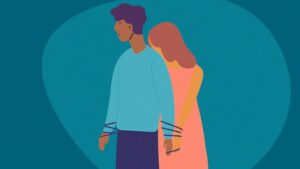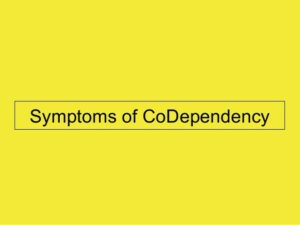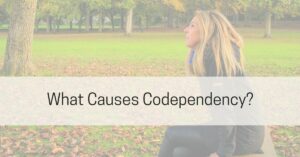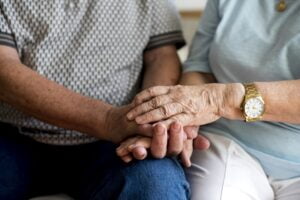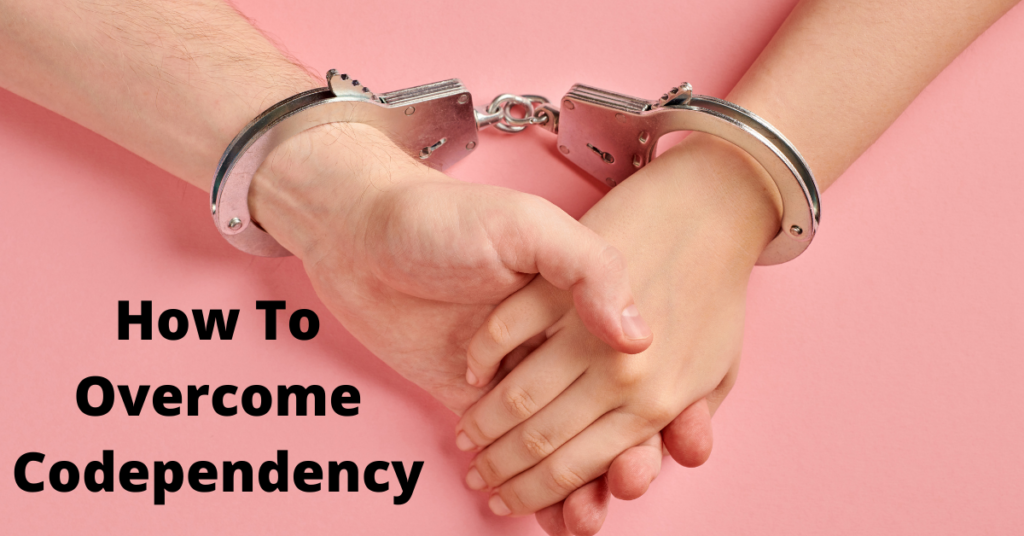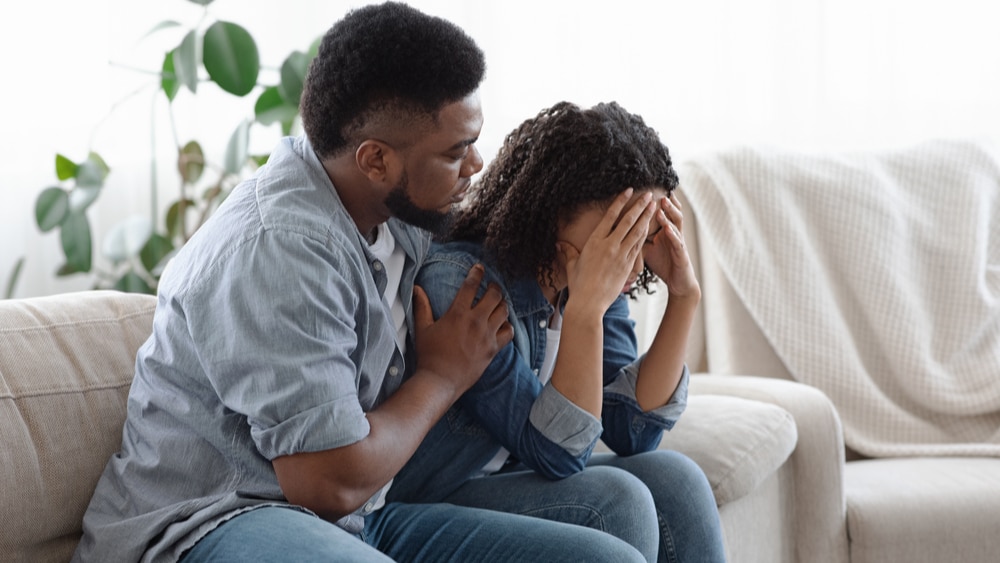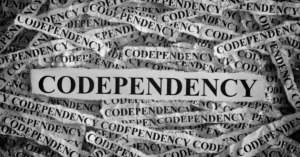Parents are often told not to co-depend on their children, but what does it mean? Co-dependency is a type of addiction in which one person supports another person who is addicted to drugs or alcohol. This is when one person does something and the other person helps them do it. It can also be applied when two people depend on each other emotionally. In this article, I will tell you about how this type of relationship can affect both people. And I will tell you ways to get help for yourself or your loved one if necessary.
Contents
- 1 What Is Co-Dependency?
- 1.1 Psychological Effects of Co-Dependency
- 1.2 Signs That you Are Being Co-Dependent
- 1.3 Causes Of Co-Dependence
- 1.4 When To Seek Professional Help For Co-Dependency?
- 1.5 Treatment Options For Co-Dependence
- 1.6 Other Tips To Deal With Co-Dependence
- 1.7 Helping Someone Who Is Co-Dependent
- 1.8 Dangers Of Co-Dependency
- 2 Conclusion
What Is Co-Dependency?
Co-dependency is a term used to describe any one person’s behavior that affects another person and interferes with their life. It can be very hard for the co-dependent person to stop these behaviors. It might not be easy, either, to recognize them as being co-dependent. Co-dependents need the support of other people who are not co-dependent in order to change themselves.
Psychological Effects of Co-Dependency
The psychological effects of co-dependency are:
- Low self-esteem: A co-dependent person might have very low self-esteem. People might think that they are not good enough, or that they do not deserve to be loved.
- Lack of trust: Co-dependents often find it hard to build up trust because of their boundaries and trust issues.
- Fear of abandonment: Co-dependents often fear abandonment, or that they will be left alone. This can cause people to be very close to other people, even if they are not friends.
- Difficulty setting boundaries: One of the key signs of co-dependency is difficulty in setting boundaries. The co-dependent person might not be able to clearly state what they want from others, or say no.
- Peer pressure: Co-dependents often find it hard to stand up for themselves and refuse peer pressure. Co-dependents will go along with other people who are doing things that they don’t agree with.
- Insecurity: Co-dependent people often feel very insecure in their relationships. They might be worried that the person they are with will leave them, or that they are not good enough for the other person.
- Poor communication skills: Co-dependents often have poor communication skills. This can lead to a lot of misunderstandings and arguments in their relationships.
- Unhealthy attachments or relationships: Co-dependents often have unhealthy attachments or relationships. They might be attracted to people who are abusive, or who do not treat them well. This can cause a lot of pain and suffering for the co-dependent person.
The psychological effects of co-dependency can be very damaging to a person’s life. If you think that you might be co-dependent, get help. You can stop these behaviors and have a healthier relationship.
Signs That you Are Being Co-Dependent
There are a few signs that you might be co-dependent. If you answer yes to any of these questions, then it is important to seek help:
- Do you feel like you need other people to survive?
- Have a hard time saying no?
- Do you feel like you’re not good enough without the approval of others?
- Feel like you can’t function without other people in your life?
- Do you find yourself constantly trying to please others?
- Are you always worried about what others think of you?
- Do you feel guilty or ashamed when you’re not with other people?
If you answered yes to any of these questions, then it is important to seek help so that you can start to change these behaviors.
Causes Of Co-Dependence
There is no one cause of co-dependency. It can be caused by several things, such as:
- A traumatic event, such as physical or sexual abuse: This can often leave people feeling like they are not good enough and that they need to rely on others to survive.
- Neglect or abandonment: If a person has been neglected or abandoned as a child, they might develop co-dependency as an adult in order to try and fill that hole in their life.
- A mental health condition: Borderline Personality Disorder and Dependent Personality Disorder are illnesses that can lead to co-dependency.
- Having unhealthy role models: If a person’s parents were co-dependent, then it is more likely that the person will also be co-dependent themselves.
- Growing up in a dysfunctional family: People who grow up in dysfunctional families are more likely to develop co-dependency themselves.
If you have a history of any kind of trauma, it might be harder for you to set boundaries or say no. It might also be harder for you to build up trust in other people, and this can lead to co-dependency.
When To Seek Professional Help For Co-Dependency?
If you think that you might be co-dependent, it is important to seek professional help. This can be done through a therapist or counselor who specializes in co-dependency. They will be able to give you the tools and support that you need to start changing your behaviors and have healthier relationships.
Co-dependency is a very serious condition and left untreated it can lead to a lot of pain and suffering for the person affected. If you think that you might be co-dependent, then it is important to get help. You can change these behaviors and have healthier relationships.
Treatment Options For Co-Dependence
There are several treatment options for co-dependency. They include:
- Cognitive Behavioral Therapy (CBT): This can be very helpful to set boundaries and say no. It can also change the way that people think about themselves.
- Group therapy: Group therapy can be helpful because people who have similar issues can talk to each other. They will also learn how to do things like recovery. It also allows them to learn from other people’s experiences so that they can avoid making the same mistakes again in future relationships.
- Medication: There is not a lot of research on medication options for co-dependency because there has been little attention to this problem. But doctors recommend SSRIs because depression is common among people with this condition.
- Family counseling: A person suffering from co-dependency is often not aware of their condition and how it affects those around them. If you are trying to help someone, family counseling may help. It’s helpful for family members when they need to know how best to support the person who is suffering through this process.
If you think that you might be co-dependent, then find help. You can learn how to recover.
Other Tips To Deal With Co-Dependence
There are several things that you can do to deal with co-dependency. They include:
Talking about your issues
It is important to let people know if you have a problem with co-dependency so that they can help you. Even though it might be embarrassing, don’t keep these issues hidden because doing this can often make them worse.
Seeking professional help
If you can, find a therapist or counselor who helps people recover from co-dependency. They will have tools for coping with your condition. There are groups where you can go online and talk with other people about how they feel. It might help. But do not compare yourself to others on the forums. Everyone’s experiences are different.
Building healthy relationships
This is one of the most important things that you can do to start recovering from co-dependency. Start by being honest with yourself and others about what you want and need from a relationship. Make sure that you set boundaries and stick to them, and don’t be afraid to say no if someone asks too much of you. Try to focus on developing positive relationships with supportive people and understanding.
Self-care
When you’re struggling with co-dependency it can often be hard to take care of yourself emotionally and physically. Do things that make you happy and relaxed. For example, read a book, take a walk, watch your favorite show or spend time with friends and family.
Helping Someone Who Is Co-Dependent
If you know someone who is co-dependent then there are several things that you can do to help them. They include:
Avoid enabling their behavior
People who have co-dependency problems have a hard time saying no and asking for what they need in relationships. When people feel this way, it can be because they are afraid of being rejected or abandoned. If your friend or family member lives with you, you must have healthy boundaries. If you try to force them, they will be angry and resentful of both of us. Instead of being mean, be patient and understanding. Let them see how much better life is when we take control of our behaviors instead of following the rules/exceptions other people set for us.
Encourage them to seek professional help
Often people with co-dependency issues are not aware that they have a problem. If you can see that someone you love is struggling, encourage them to get help from a professional so they can start getting better.
Therapists can help people who have a co-dependency problem. They will help people learn to deal with problems.
Offer emotional support
Co-dependent people often struggle with feelings of guilt, shame, and worthlessness. Tell your loved ones that you love them even if it is hard. It is good to tell them that they are important to you.
Risk Factors Of Co-Dependency:
- People who were raised in dysfunctional families are more likely to develop co-dependency.
- If you have low self-esteem, you’re also at risk for developing co-dependency.
- If you’ve been involved in an abusive relationship, you’re also at risk for developing co-dependency.
- People with mental health problems, such as depression or anxiety disorder are also at risk for developing co-dependency.
- Family members of people who have addictions may develop co-dependency issues.
Dangers Of Co-Dependency
- If you cannot deal with your feelings and emotions healthily then they can start controlling you. When you feel like you cannot cope with your problems, they can spiral out of control and lead to addiction or mental illness.
- Co-dependent people may struggle in relationships because they do not know how to be themselves when talking about their feelings.
- If someone is too dependent on other people it will also affect them emotionally and physically. They may feel smothered, trapped, and helpless.
- If you are co-dependent, it is important to get help before the problem gets worse. The earlier you seek treatment, the better your chances for recovery will be.
- There are groups where you can go online and talk with other people about how they feel. It might help you to open up and talk about your feelings.
Conclusion
Co-dependency is a term used to describe the behaviors that people who have addictive personalities exhibit. Some people need help and encouragement from others when they go through hard times. If you are worried about yourself or someone else’s co-dependent traits, it is a good idea to talk to a professional counselor before things get worse.
If you are looking for affordable Online Counseling MantraCare can help: Book a trial therapy session


